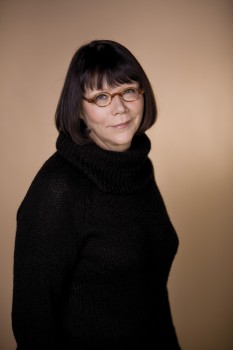Search results for "jarkko/2009/09/what-god-said"
In the detail?
11 December 2009 | Essays, Non-fiction
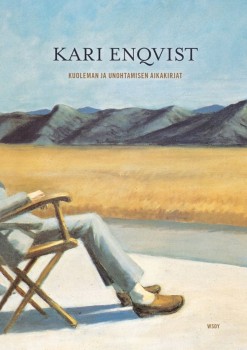 Extracts from Kuoleman ja unohtamisen aikakirjat (‘Chronicles of death and oblivion’, WSOY, 2009)
Extracts from Kuoleman ja unohtamisen aikakirjat (‘Chronicles of death and oblivion’, WSOY, 2009)
What’s the meaning of life? There are those who seek it in religion, while for others that is the last place to look. The scientist Kari Enqvist ponders why some people, including himself, seem physiologically immune to the lure of faith. Perhaps, he suggests, we should look for significance not in the big picture, but in the marvel of the fleeting moment
As a young boy I must have held religious beliefs. However, I cannot pinpoint exactly when they disappeared. At some point I eventually stopped saying my evening prayers, but I am unable to remember why or when this happened. ‘I was born in a time when the majority of young people had lost faith in God, for the same reason their elders had had it – without knowing why,’ writes the Portuguese poet Fernando Pessoa in The Book of Disquiet. More…
I am me
30 September 2010 | Fiction, Prose
Extracts from the novel Poikakirja (‘The boy’s own book’, Otava, 2010). Introduction by Mervi Kantokorpi
It’s a small day in spring. Another name for the lark is the skylark. You can only see them sometimes, and even then they’re so high up in the sky that they swoop like fast-moving dots.
The kitchen windowpane is rippling with stripes. The window has a bottom, and at the bottom there is some cotton wool and two opened matchboxes, a blue Sampo and a picture of an army chaplain in his uniform and insignia. As spring has progressed the cotton wool at the bottom has turned into wet blobs and the matches will never light again, as they’ve sucked up the winter frost from the glass.
Most children are made at home but not us, says Eini during walking practice. Outi shoves her, tells her to be quiet and walk in rhythm. I’m behind the table reading the Children’s Encyclopaedia, but I watch them. With every second step, their bottoms swing to the right and then to the left.
Mum comes into th the kitchen and asks what they’re doing; Anna-Liisa responds on the twins’ behalf, says they’re practising walking like in the movies and that’s why they’re wiggling their hips. More…
The 101-year anniversary celebration
30 September 1989 | Archives online, Fiction, Prose
From the collection of short stories, Saksalainen vävy (‘The German son-in-law’) , 1988. Interview by Erkka Lehtola
Järvinen thought he must have turned up at the wrong place when he saw an iron cross on a grey concrete wall. Surely the library couldn’t be holding its celebration here?
He groped in his breast pocket for the map the librarian had sent him. No: there the landmarks were, he’d followed them, he was at the right place.
He drove on a bit and saw there were cars parked behind the building. He parked next to them and got out. All the other cars were shiny, as if they’d just been washed; his was the only dirty one, its chassis a dusty grey. Rosinante came into his head, and he started wondering what Rosinante’s colour was supposed to have been: just the sort of knowledge he could fit in somewhere. Grey, he guessed – just as General Sandels’ horse in the Runeberg poem was white. And what colour was Pegasus? Didn’t know that either – it hadn’t ever even occurred to him to wonder. Almost certainly it would be there in the mythology. More…
Cause of death
30 June 1999 | Archives online, Fiction, Prose
A short story from Åtta kroppar (‘Eight bodies’, Söderströms, 1998). Introduction by Ann-Christine Snickars
It was a bailer, a blue one. There they were, he, she, the bailer and a stormtossed net on the stern board of a hired boat. The boat had come with the cottage and the cottage with ‘Autumn archipelago package. Now nature is aglow.’
And it was aglow.
Masses of foliage and apples, damson and shiny russula spread out around them in all their glory. It happened everywhere, that glowing. Wherever one turned one’s gaze there was something ready to be picked or ready to fall, ready in general. Those first days they had, at least to each other, she to him, feigned enthusiasm about all this ripe richness, but that time was over.
Their time of fire and flames was over. More…
He came in through the bathroom window
30 June 1991 | Archives online, Fiction, Prose
A short story from Utslag och andra noveller (‘Rash and other stories’, Alba, 1989). Introduction by Pekka Tarkka
He heard a voice behind him:
‘Hey, Aspelin, what are you doing here?’
Awakening from a half-sleep, he looked around as Ilpo approached his seat.
‘I work near here. I’m teaching math to the visually impaired.’
Ilpo sat down next to him. For several seconds they sat without speaking. Then Aspelin collected himself.
‘And you?’
‘Visiting a friend. He lives in Mäkkylä.’ More…
Art in nature
30 December 2001 | Fiction, Prose
A short story from Dockskåpet (‘The doll’s house’, 1978)
When the summer exhibition closed in the evenings and the last visitors went away, it became very quiet. A short time later boat after boat set off from the shore and sailed back to the village on the other side of the lake. The only member of staff who remained overnight was the caretaker; he slept in the sauna changing room at the bottom of the large lawn where the sculptures had been lined up among the trees. He was very old and had a bad back, but it had been hard to get hold of someone who didn’t mind the long, lonely evenings. And there had to be a night caretaker because of the insurance. More…
The house in Silesia
31 December 1989 | Archives online, Fiction, Prose
A short story from Talo Šleesiassa (‘ The house in Silesia’, 1983). Read the interview
We set off, my brother-in-law and I, at the beginning of September. The tourist season was already over, and on the Gdansk ferry there was stacks of room for my brother-in law’s Volvo and the two of us.
We’d driven from his home on the shore of Lake Mälar to the ferry port at Nynäshamn, about fifty miles south of Stockholm. We’d driven in an atmosphere of cheerful resolution, accelerator down, but going steadily. The resoluteness was due to my brother-in-law’s decision after forty years’ absence to visit his childhood home. If it was still standing, that is – or whatever of it was.
‘Oh the house is definitely still in place there all right,’ he said: ‘I’ve got that sort of tickly feeling in my arse.’ It was a direct translation from the German – German humour of the vulgar variety centring round the bottom. More…
Nine lives
30 September 1994 | Archives online, Fiction, Prose
Entire lives flash by in half a page in this selection of very short short stories. Extracts from Elämiä (‘Lives’, Otava, 1994)
Silja
Silja was born in 1900. The home farm had been sub-divided many times. Silja threw a piece of bread on the floor. ‘Don’t sling God’s corn,’ said grandmother. Silja got up to go to school at four. In the cart, her head nodded; when the horse was going downhill its shoes struck sparks in the darkness. Silja’s brother drove to another province to go courting. Silja sat in the side-car. ‘The birches were in full leaf there,’ she said at home. Silja went to Helsinki University to read Swedish. She saw the famous Adolf Lindfors playing a miser on the big stage at the National Theatre. Silja got a senior teaching post at the high school. With a colleague, she travelled in Gotland. Silja donated her television set to the museum. It was one of the first Philips models. ‘Has this been watched at all?’ they asked Silja. Silja learned to drive after she retired. She called her car ‘The Knight’. The teachers’ society made a theatre trip to Tampere. Silja looked up her colleague in the telephone directory in the interval. There was no one of that name. More…
Is this all?
10 October 2013 | Extracts, Non-fiction
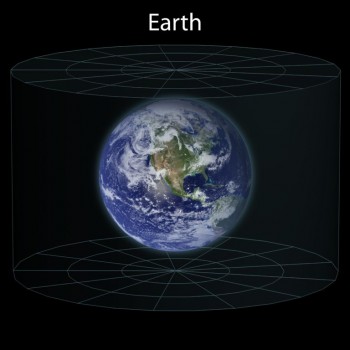
Earth. Andrew Z. Colvin/Wikimedia
In today’s world, many people find that it is not the lack of something that is problematic, but excess: the same goes for knowledge. According to professor of space astronomy, Esko Valtaoja, knowledge should contribute to the creation of a better world. His latest book is a contribution to the sum of all knowledge; over the course of two hundred pages Valtaoja delves deep into the inner space of man by taking his reader on a brief tour of the universe. Extracts from Kaiken käsikirja. Mitä jokaisen tulisi tietää (‘A handbook to everything. What everybody should know’, Ursa, 2012)
Whatever god you bow down to, you’re probably worshipping the wrong god.
The above is almost the only completely certain thing that can be said about religion, and even it does not encompass any deep truth; it’s just a simple mathematical statement. The world’s biggest religion is Roman Catholicism, which is confessed, at least nominally, by 1.1 billion people. If the Roman Catholic god were the true god, the majority of people in the world are therefore worshipping a false god. (According to the official stance of the Catholic church, the other Christian denominations are heresies, and their believers will be condemned to perdition: extra ecclesiam nulla salus. This inconvenient truth is, understandably, politely bypassed in ecumenical debate. But even if all those who call themselves Christians were counted as worshipping the same god, two thirds of the world’s population are still knocking at the wrong door.)
If you’re a religious person, don’t worry; I’m not blaspheming. And if you’re a campaigning atheist, hang on a minute: all I want to do is to find a clear and undisputed starting point to consider what it is we’re talking about when we speak of religion. More…
The tower
31 December 1987 | Archives online, Fiction, Prose
A short story from the collection Torni (‘The tower’, 1987). Introduction by Erkka Lehtola
The dog came through the door first, a big, long-haired brute. He hadn’t said anything about it on the phone, but from the look on his face you could tell it was his and that he meant to take it with him into the forest.
He shuffled across the yard with his rubber boots on and a rucksack on his back. In one hand he held a camera tripod.
I rolled down the window.
‘Wait a minute,’ he said.
He walked behind the cars standing in the parking lot, over to his own car and opened the trunk. The dog twisted around his legs whining softly. He took something out and slammed the trunk shut. More…
A day at the zoo
23 December 2009 | Children's books, Fiction
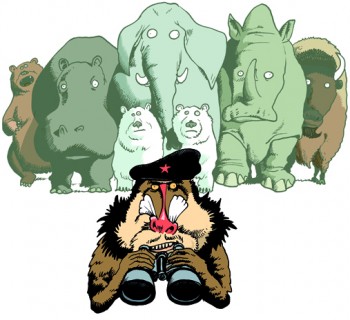
Extracts from the children’s book Zoo – eläimellinen tarina (‘Zoo – a bestial story’, WSOY, 2009, illustrated by Pertti Jarla)
The place: A zoo, once the property of the city, now privatised and accountable to corporate stockholders
The characters: The animals of the zoo, in particular Gandhi, a Sumatran tiger (false-teeth, poor vision, pacifist), Che, a male mandrill baboon (militant), and Mother Teresa, a hammer-headed bat (elderly); the zookeeper Sihvonen (stands up for the animals, recently fired); the new zoo director (whose main goal is to maximise profits); the shareholders’ committee (awaiting their earnings)
The action: after a demonstration in which all the animals played dead, the animals are staging a revolution to demand that Sihvonen be reinstated
![]()
The animals crowded into the foyer. The hallway was full of every kind of creature, with all of their skin, fur and feathers steaming in the warm indoor air. Che stood at the top of the the stairs, looked down at his troops, and gave the order in mime for everybody to be quiet.
‘Reconnaissance?’ he said, his voice subdued.
‘Ready!’ the leaf-tailed geckos announced.
‘Head in!’ Che commanded. More…
Wo/men at war
9 February 2012 | Essays, Non-fiction
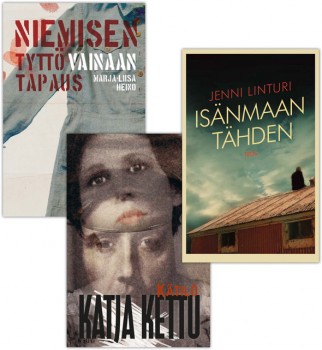 The wars that Finland fought 70 years and a couple of generations ago continue to be a subject of fiction. Last year saw the appearance of three novels set during the years of the Continuation War (1941–44), written by Marja-Liisa Heino, Katja Kettu and Jenni Linturi
The wars that Finland fought 70 years and a couple of generations ago continue to be a subject of fiction. Last year saw the appearance of three novels set during the years of the Continuation War (1941–44), written by Marja-Liisa Heino, Katja Kettu and Jenni Linturi
In reviews of Finnish books published this past autumn, young women writers’ portraits of war were pigeonholed time and again as a ‘category’ of their own. This gendered observation has been a source of annoyance to the writers themselves.
Jenni Linturi, for instance, refused to ruminate on the impact of her sex on her debut novel Isänmaan tähden (‘For the fatherland’, Teos), which describes the war through the Waffen-SS Finnish volunteer units and the men who joined them [1,200 Finnish soldiers were recruited in 1941, and they formed a battalion, Finnische Freiwilligen Battaillon der Waffen-SS].
The work received a well-deserved Finlandia Prize nomination. Tiring of questions from the press about ‘young women and war’, Linturi (born 1979) was moved to speculate that some critics’ praise had been misapplied due to her sex. The situation is an apt reflection of the waves of modern feminism and the reasoning of the so-called third generation of feminists, who reject gender-limited points of view on principle. More…
Between two loves
31 December 1999 | Archives online, Fiction, Prose
From Se tapahtui täällä (’It happened here’, Otava, 1999). Introduction and interview by Nina Paavolainen
She thought of the period between two loves as a spacious room, full of light, outside whose windows the seasons change unhurriedly. On the walls are reflections of the morning light. There is the sound of piano music; and the number of rooms grows. Somewhere, far away, a young girl, dressed in white, is at the piano; the wind fans the curtains. Slow awakening, the soft rocking of time, the sound of bare feet on a wooden floor. In the air there is the scent of flowers, apples, and the gentle morning breeze, and perfume, and the scent of clean, ironed clothes and furniture wax. The afternoon shadows are long and cool; the pages of a book rustle slowly. Now the music pauses.

